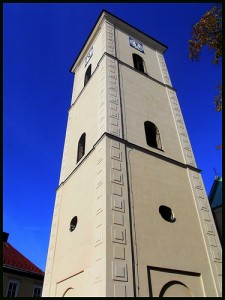Across Protestant denominations and congregations in South Korea, instances of t’ongsǒng kido, or “group prayer,” share a common feature: synchronous but unsynchronized individual prayers carried out in groups. In these groups, a cacophony of voices hinders the interpretability of any single voice. Some extol this form of prayer as the optimal way to share personal secrets with God while participating in a Christian community. This ethnographic study links this widespread prayer genre to other forms of meaningful social behavior organized around intimacy, privacy, and secrecy in South Korea.
For three quarters of a century, state surveillance was a fact of Korean life—from a Japanese colonial regime that restricted speech and attempted to control people’s everyday lives, to a military dictatorship that practiced deep and pervasive monitoring and manipulation of its citizens in the name of modernization, stability, economic growth, and anti-communism. While these authoritarian regimes have given way to representative democracy, privacy still remains a concern, because forms of surveillance are still carried formally by the state, as well as, crucially, by family, friends, and acquaintances in the form of social surveillance.
To link prayer and reflections on it to individuals’ ongoing attempts to find spaces of intimacy and privacy, I study ethnographically the various forms of masking and hiding that are mobilized in response to surveillance. One dimension of the research is focused on prayer itself—its structures and formal features, the contexts of its practice, and reflections on its purpose and efficacy. The other dimension looks at different areas of contemporary social life in Seoul that also operate around privacy, intimacy, and secrecy, such as social factions, Internet discourse and slang, and the use of hidden quarters of the city.
This research uses the analytical and methodological tools of linguistic anthropology and semiotic anthropology, which attempt to link semiotic structure, social practice, and cultural ideology through ethnography. This research will further our understanding of the social and institutional dynamics of prayer by viewing a culturally specific, socially significant, institutionalized, highly ritualized form of prayer in relation to other socially significant forms of behavior beyond the church. At a more general level, this research speaks to longstanding concerns in the social sciences with the way private, secret, or esoteric knowledge and practices emerge and are formalized in specific kinds of social relations. Linking secrecy in prayer to practices of intimacy- and privacy-making in broader Korean urban society will demonstrate the ability of prayer both to reflect deep and pervasive concerns of members of a society, as well as to generate practical ways of managing these concerns while reproducing other values of a society, such as collective group sociality and publically performable morality.
 When I went back to graduate school in my 40s, I took with me years of having produced films, network TV programs, and a mass-market book. I thought the theological faculty would be impressed. They were not, except for my advisor who saw the potential for mass-media religious education. My qualifications and publishing record was enough to get me into a Master of Arts program at Union Theological Seminary in the City of New York, but I quickly discovered that academia and mass-media didn’t relate very well with each other.
When I went back to graduate school in my 40s, I took with me years of having produced films, network TV programs, and a mass-market book. I thought the theological faculty would be impressed. They were not, except for my advisor who saw the potential for mass-media religious education. My qualifications and publishing record was enough to get me into a Master of Arts program at Union Theological Seminary in the City of New York, but I quickly discovered that academia and mass-media didn’t relate very well with each other.

